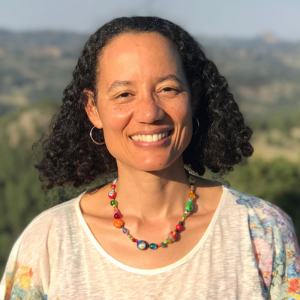Please note this retreat meets the requirements for participants in Jack Kornfield + Tara Brach’s Mindfulness Meditation Teacher Certification program through Sounds True. Please read the Criteria for MMTCP Retreat Attendance Requirements.
The Divine Abodes (Brahmaviharas) of lovingkindness, compassion, joy, and equanimity, are the places of the open, awakened heart. In this retreat, on the foundation of insight meditation and the development of mindfulness, we will learn the formal practices of lovingkindness, compassion, joy, and equanimity. We will also offer guidance for bringing these practices into daily life, including in challenging situations—whether in our relationships, our work and community lives, our being present in the pandemic, or in our efforts at social change. All of these practices strengthen clear seeing and wisdom, self-confidence, self-acceptance, generosity of spirit, steadiness of mind and heart, and skillful action, revealing our fundamental kindness and wisdom, in a culture in which heart and mind are often disconnected.
Core instructions in the different practices will be offered in periods of sitting meditation, complemented by talks, discussion, meetings with the teachers, walking meditation, and brief daily guided movement sessions. This retreat is suitable both for those wanting a dedicated at-home retreat, much like a residential retreat, and for those with some responsibilities wanting a home retreat with many hours of formal practice but also time for other activities. For all, there will be an emphasis on bringing practice both into our time together and our time away from the group. We have designed this retreat so that it can work well for those in the Pacific time zone as well as the Eastern time zone, and time zones in between.
Tentative Schedule (All Times in PT):
Sessions: Day 1
2 – 3 p.m. Organizing meeting on practical and technical matters: Required for all retreatants.
3 – 4 p.m. Open time.
4 – 5:30 p.m. Opening session.
5:30 to rest time. Home practice.
Sessions: Day 2-6
6 to 6:45 a.m. Qigong and sitting meditation.
6:45 to 8 a.m. Home practice.
8 to 9 a.m. Instructional sitting, Q&A.
9 to 10:20 a.m. Home practice.
9:15 to 10:15 a.m. Practice discussions in small group (when assigned)
10:20 to 11 a.m. Sitting meditation.
10:30 to 11:30 a.m. Practice discussions in small group (when assigned)
11 to 11:45 a.m. Home practice.
11:45 a.m. to 12:15 Sitting meditation.
12:15 to 2 p.m. Home practice.
12:45 to 1:45 p.m. Practice discussions in small group (when assigned)
2 to 3 p.m. Instructional sitting, Q&A.
3 to 3:55 p.m. Home practice.
3:55 to 4:25 p.m. Sitting meditation.
4:25 to 4:30 p.m. Break.
4:30 to 5:30 p.m. Dharma Talk, discussion/Q&A.
5:30 to 6 p.m. Walking meditation.
6 to 6:30 p.m. Sitting meditation, chanting.
6:30 to rest time. Home practice.
Sessions: Day 7
6 to 6:45 a.m. Qigong and sitting meditation.
6:45 to 8:30 a.m. Home practice.
8:30 to 9 a.m. Sitting meditation
9 to 10 a.m. Home practice
10 to 11:30 a.m. Closing session.
11:30am End of retreat
*All are strongly encouraged to attend as much of this retreat as your schedule allows with emphasis on the bolded sessions. Each retreatant will attend two group meetings in the week.
**Upon registering, please be sure to read and bookmark the Retreat Homepage in the auto-confirmation email for important tips on setting up your space and what to expect on retreat.
________________________
Pricing:
This is a dana retreat. The Class Fee includes InsightLA’s administration fees only and it does not include compensation to the teachers. There will be an opportunity at the end of the retreat to give a donation/dana to the teachers. The practice of giving donations/dana helps continue the ancient Buddhist monastic tradition of teaching on a dana basis – dana being the Pali word for generosity or giving freely.
Your contributions help teachers to lead a life devoted to teaching both at InsightLA and in other parts of the world, including communities without the means to donate. Your gifts also allow teachers to take time for their own practice, ensuring that their teachings are continuously enriched.
It takes courage and faith for meditation teachers to dedicate their lives to offering the teachings. They must trust that daily personal and family needs will be met through this practice of dana – a system of compensation that is generally unfamiliar in our culture.




